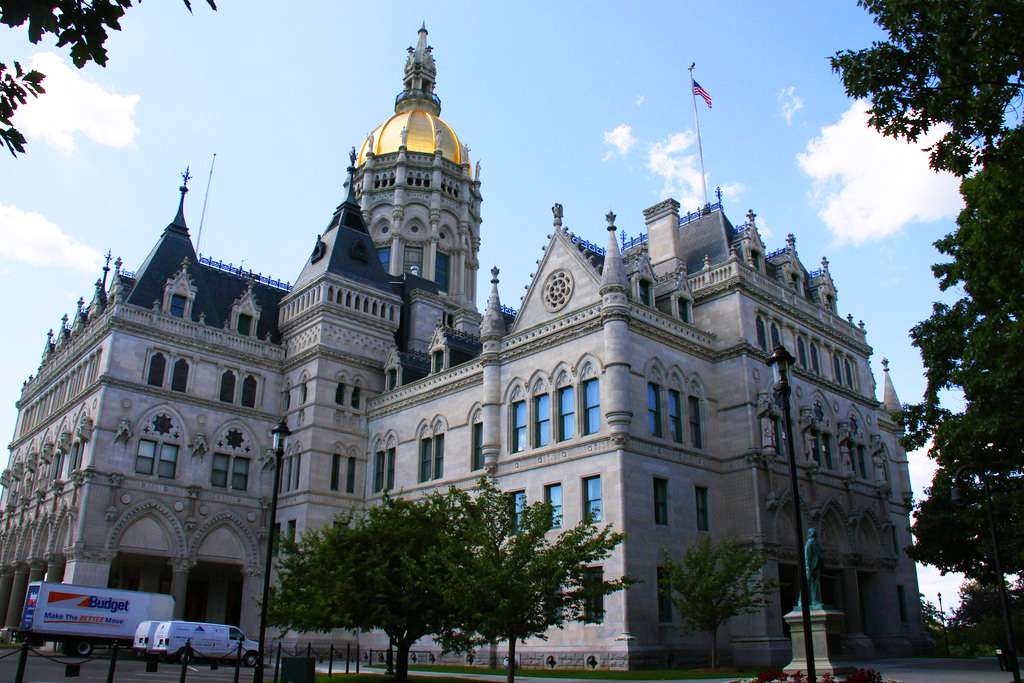
Wikimedia Commons
A legislative task force unanimously recommended on Monday that Connecticut eliminate the statute of limitations for civil sexual assault cases, which would allow victims to hold their abusers accountable at any point in their lives.
Citing an inability to achieve all their goals for the legislative session in a short time period, the Joint Committee on Judiciary excluded the bill from their agenda Friday — a decision that sparked protest from survivors.
“We were left horrified that we had to wait another year,” said Beth McCabe, a leader of the Connecticut chapter of Survivors Network of those Abused by Priests, or SNAP. “They had a task force, they brought in the leading expert, they had many survivors — myself included — testify, and they chose for some reason not to weigh that into their decision.”
Connecticut law currently mandates that child sex abuse survivors file legal claims against their abusers before their 51st birthdays. CHILD USA — a think tank founded by national child sex abuse expert professor Marci Hamilton, who serves on the task force — has published statistics citing the average age of disclosure for child sex abuse survivors as 52 years old.
Several survivors said they pushed to eliminate the statute of limitations for two main reasons: to achieve further closure on their own trauma and to ensure that their abusers cannot victimize other children.
“When the law passes, there are going to be a lot of predators that we’re going to know about,” McCabe said. “It’s our responsibility as adults to take care of kids.”
Lori Temple, also a survivor and member of SNAP, said she reported her abuser to the Archdiocese of Hartford hoping primarily for an apology from the institution. According to Temple, the archdiocese advised her that it was futile to report because she was past the age stipulated by the statute of limitations.
“The Archdiocese of Hartford released a list of credibly accused priests of sexual assault of children. I was sitting at work and it just popped up and, honest to God, it just triggered memories that I hadn’t thought of for years,” Temple said in an interview with the News. “My perpetrator’s name wasn’t on the list, so I called the Archdiocese of Hartford saying you made a mistake, you left someone off the list, and as you can imagine … that was not a good experience.”
Both McCabe and Temple said they felt the Catholic church has outsize impact in the lobbying process around sexual abuse cases, but added that the issue is not limited to any one institution. The majority of child sexual abuse perpetrators are not religious figures but family members and caregivers, according to the United States Department of Health and Human Services.
“It was a funny year for this legislation because it’s a short session … I can sort of see where they’re coming from,” said Lucy Nolan, director of policy and public relations for the Connecticut Alliance to End Sexual Violence, referring to the decision to drop the bill this year. “As a lobbyist, I’m a step away from it … but if you’re a survivor, next year seems so far away, and every day you’re still living with it hurts.”
State Sen. Gary Winfield — himself a survivor — voted against the bill due to other legislative priorities. In an emotional testimony, he talked about his experiences as a survivor and said this was a difficult choice.
“On the way back from Bridgeport, we called to update [the survivors network],” said Temple. “There are people that are honestly broken. Because our power was taken from us … [this bill] is, number one, to take our power back.”
If the bill passed, Connecticut would be the second state to eliminate the statute of limitations in civil sexual assault cases.
Ella Goldblum | ella.goldblum@yale.edu
Interested in getting more news about New Haven? Join our newsletter!








